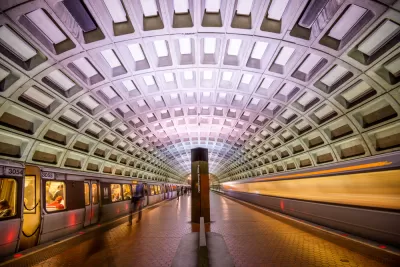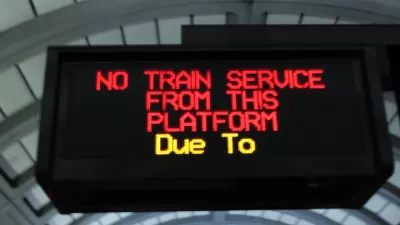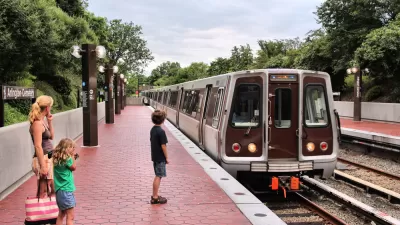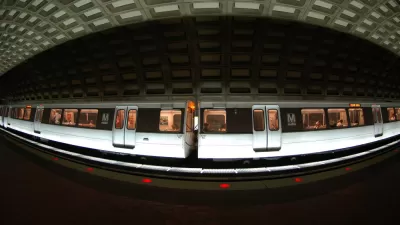The general manager of D.C. Metro wants to extend limited late night rail service, in place for two years, into 2019 and beyond. Metro board members have had enough.

Natalie Delgadillo reports that members of the Metro Board of Directors are planning to veto a proposal by Metro General Manager Paul Wiedefeld to preserve limited night service on the D.C. Metrorail system.
Right now the system shuts down at 11:30 p.m. on most weeknights and 1 a.m. on the weekends. If the board members get their way, that will shift back to midnight closing times on weekdays and 3 a.m. closures on the weekends.
The limited late night hours date back to the SafeTrack repair program of 2016. Jack Evans and Corbett Price, and expected to veto the proposal to extend limited late night hours. Evans is quoted in the article saying he agreed to two years of limited late night service.
If the veto works, Metro riders will see late night service extended starting July 1, 2019.
FULL STORY: Looks Like Metro May Be Getting Late Night Hours Back

Planetizen Federal Action Tracker
A weekly monitor of how Trump’s orders and actions are impacting planners and planning in America.

Maui's Vacation Rental Debate Turns Ugly
Verbal attacks, misinformation campaigns and fistfights plague a high-stakes debate to convert thousands of vacation rentals into long-term housing.

San Francisco Suspends Traffic Calming Amidst Record Deaths
Citing “a challenging fiscal landscape,” the city will cease the program on the heels of 42 traffic deaths, including 24 pedestrians.

Amtrak Rolls Out New Orleans to Alabama “Mardi Gras” Train
The new service will operate morning and evening departures between Mobile and New Orleans.

The Subversive Car-Free Guide to Trump's Great American Road Trip
Car-free ways to access Chicagoland’s best tourist attractions.

San Antonio and Austin are Fusing Into one Massive Megaregion
The region spanning the two central Texas cities is growing fast, posing challenges for local infrastructure and water supplies.
Urban Design for Planners 1: Software Tools
This six-course series explores essential urban design concepts using open source software and equips planners with the tools they need to participate fully in the urban design process.
Planning for Universal Design
Learn the tools for implementing Universal Design in planning regulations.
Heyer Gruel & Associates PA
JM Goldson LLC
Custer County Colorado
City of Camden Redevelopment Agency
City of Astoria
Transportation Research & Education Center (TREC) at Portland State University
Jefferson Parish Government
Camden Redevelopment Agency
City of Claremont





























